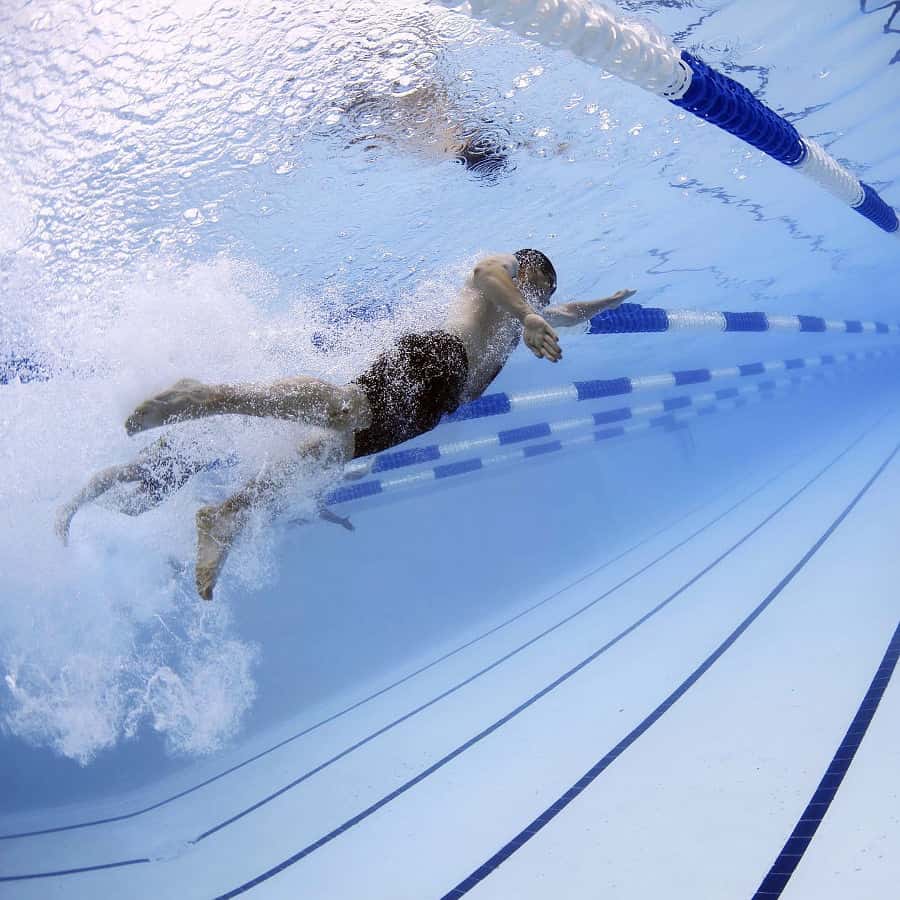
When water gets into the ears from a bathtub, lake or swimming pool, there is a risk that it could encourage an infection in the outer ear. Because this type of infection is so common among people who have been swimming, it is called swimmer’s ear.
To tell the difference between swimmer’s ear in the outer ear canal and an infection behind the eardrum (otitis media), wiggle the earlobe. This causes significant pain in a case of swimmer’s ear. The pain doesn’t change with movement of the earlobe if the problem is an inner ear infection.
A doctor may prescribe antibiotic ear drops to treat the infection, but it is much better to avoid swimmer’s ear in the first place. To do that, don’t allow water to stay in the ear. A disinfectant may also discourage bacteria and fungus from growing.
How to Prevent Swimmer’s Ear:
Q. I swim every day for exercise and frequently get swimmer’s ear infections. I tried making my own remedy of half vinegar half alcohol, but it didn’t work well.
A product called Swim-EAR solved the problem. It is 95 percent alcohol and 5 percent anhydrous glycerin.
A. Thanks for the tip. Others may benefit from your experience.
A triathlete offered his own solution of alcohol, vinegar and glycerin to treat the ears after climbing out of the pool. The proportions were 10 percent glycerin and 45 percent of each of the others.
In addition to Swim-EAR, a commercial product called Auro-Dri can be used to prevent infection. It has a formula like that of Swim-EAR.
People like you who swim every day may find it worthwhile to have custom ear plugs made to keep water from getting into the ears at all.
Do Ear Drops Work Against Infection?
Q. I recently read a comment by a physician who insisted that you gave readers bad advice. He recommended using a blow dryer after swimming to prevent swimmer’s ear instead of alcohol and/or vinegar drops.
As a pharmacist manager for 45 years, I can say the use of alcohol and vinegar in swim ear drops is valid. The most important thing is to restore the acidity to the ear canal after prolonged swimming. Vinegar does this. A warm hair dryer does not. The alcohol easily mixes with trapped water in the ear and allows it to drain more easily.
The doctor was concerned about the potential for ear drops to penetrate a perforated eardrum. A child with a perforated eardrum should NOT be in the pool without ear plugs, period.
A. Thank you for your thoughtful defense. We think anyone with a perforated eardrum should not swim unless they have been seen by an otolaryngologist. That expert may be able to offer a treatment plan or recommend a secure ear plug that would keep water out.
Home Remedy for Swimmer’s Ear:
The home remedy of half vinegar and half alcohol has been around for a while. Here is another question from a different reader who had a problem with swimmer’s ear.
Q. Do you know of any good ways to deal with swimmer’s ear? I can usually feel it coming on (often after swimming in a lake or pond), but I haven’t been able to clear it up before it gets to the point where I need a doctor and some antibiotics.
A. Prolonged exposure to water sitting in the ear canal after swimming can make the outer ear more susceptible to this kind of infection. As you’ve noted, swimmer’s ear is more common after swimming in non-chlorinated water that may contain bacteria.
Getting the Moisture Out with a Drying Solution:
The key to preventing swimmer’s ear is to get the water out of the ear canal right after swimming. When you watch people tugging on their ears and tilting their heads to the side, that’s what they are trying to do.
In addition, a drying solution can help.
One reader offered this:
“My cousins and I were in the pool all summer long while growing up. Every time we were done swimming, everyone would do the following to remove water from our ears:
“1. With an eye dropper, fill each ear canal with a 50/50 mixture of rubbing alcohol and white vinegar.
“2. Let the mixture sit for a moment while massaging around the ear.
“3. Tilt the head and use a tissue to blot the liquid out of your ear.”
Do not use a cotton swab; scratching the lining of the ear can encourage infection. Pediatricians or family doctors often recommend this type of home remedy.

